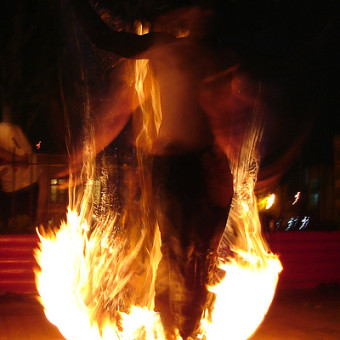A great deal of emphasis is given in our stories to tales of magical creation. Wishes are granted, and the coveted item appears out of thin air. The birth of a child, in many religions, is the beginning of salvation. The creation of a building, or an artifact, or a concrete set of precepts is often the turning point where a tale of misery becomes a valuable lesson. As we go through our lives, working to live up to our own, personal, mythologies, we carry these lessons with us and aim to build and create that which will lead us to wisdom, happiness, and a sense of righteous fulfillment at the end of our time here.
Much less often is the power of death and destruction upheld as a step along this path. Usually, tales of death are only made meaningful when death is magically overcome, or serves the purpose of furthering a noble cause. Destruction is saved for the punishment of the guilty or as a catalyst for greater achievement. Something to be avoided at all costs, but if encountered, to be nobly borne and overcome. What we rarely hear are stories of the beauty and necessity of destruction as a meaningful, sacred thing in itself. The recognition that destruction is a crucial part of all our lives if we are to continue to grow, that death creates the fertile ground for new growth, seems to have been left behind with the harvest festivals and strange, heathen temples of the east. We are a people of creation and building; we never look back. We just continue to build up and out on the basis of what came before. But what if our foundation was built so long ago that the core is rotten? Can we continue to build external supports indefinitely, attempting to shore up that which wants to fall?
